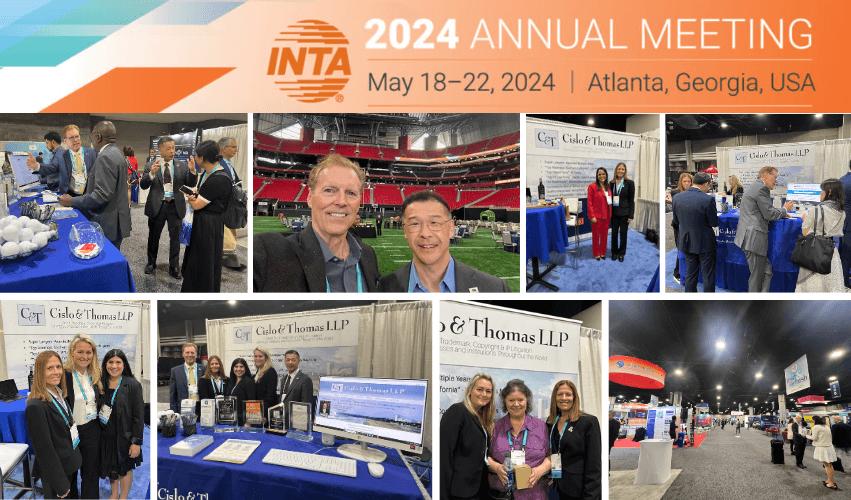Taken Down Amazon Sellers Should Consider Filing a Declaratory Judgment Action in Home State
Takeaway: An Amazon seller accused of patent infringement should consider filing a declaratory judgment action in the accused’s home state when a patent (and maybe trademark) takedown notice is sent to Amazon to stop the takedown process.
SnapPower, an electric outlet cover maker, sought a declaratory judgment action in Utah that it does not infringe on Lighting Defense Group’s patent after a review request was made to Amazon regarding SnapPower’s products.
Initially, Lighting Defense Group used the Amazon Patent Evaluation procedure to have a third party determine whether products sold on Amazon likely infringe on their patent, and if infringement is found, Amazon removes the item. Accused companies on Amazon have three options: they can either opt in and proceed with the evaluation, resolve the claim directly, or file suit seeking a declaratory judgment of non-infringement.
After Lighting Defense Group initiated the Evaluation procedure against SnapPower, SnapPower then filed suit in Utah, their home state. The Utah judge found that the accuser did not have sufficient contacts with Utah for the court to have jurisdiction over the company, but instead, the infringement allegation was directed to Washington, where Amazon is based.
The Federal Circuit reversed this decision, stating that Lighting Defense Group’s actions were purposefully directed at SnapPower in Utah. This ruling is based on the impact of Lighting Defense Group’s actions on SnapPower’s sales and activities in the state. The decision highlights the significance of extra-judicial patent enforcement activities and their implications for personal jurisdiction.
Supreme Court Expands Damages Recovery Window in Copyright Disputes
Takeaway: The U.S. Supreme Court ruled that plaintiffs in copyright ownership disputes can recover damages for infringements regardless of when they occurred, provided the claim is timely filed with the copyright law’s three (3) year statute of limitations.

The U.S. Supreme Court ruled that plaintiffs in copyright ownership disputes can recover damages beyond the three (3) year statute of limitations, rejecting Warner Chappell Music’s argument that this should only apply in cases of fraud.
This decision, delivered in a 6-3 opinion by Justice Elena Kagan, allows copyright owners to claim damages for infringements regardless of when they occurred, as long as the claim is timely filed. This ruling resolves a conflict between the Second Circuit, which had limited damages to three years prior to the complaint, and the Eleventh Circuit, which allowed recovery for older damages.
The Supreme Court’s decision did not address the broader issue of whether copyright claims accrue upon discovery of the infringement or when it actually happens, as this was not challenged by Warner Chappell. The ruling has significant implications for copyright litigation, clarifying that monetary recovery is not time-limited for timely claims.
Judge Dismisses X Corp.’s Data Mining Lawsuit Against Bright Data, Citing Copyright Act Preemption
Takeaway: A California federal judge dismissed X Corp.’s lawsuit against Bright Data Ltd. for mining and selling user data, ruling that X’s state-law claims are preempted by the Copyright Act and that X cannot restrict the distribution of publicly available content.

A California federal judge dismissed X Corp.’s lawsuit (formerly Twitter) against Bright Data Ltd., which accused the Israeli company of mining and selling user data from X’s platform. This was determined on the grounds that X’s state-law claims are preempted by the Copyright Act.
U.S. District Judge William H. Alsup found that X’s claims, based on Bright Data’s alleged access to its systems and sale of user data, would improperly allow X to control publicly available content, which is not permissible under the Copyright Act. The judge criticized X for attempting to monopolize data that is meant to be public while benefiting financially from its distribution.
X Corp. had accused Bright Data of violating its terms of service by scraping and selling data, but the judge ruled that this conduct did not harm X’s servers or services and was not aimed at protecting user privacy, but rather X’s own data sales. The court granted X the chance to amend its complaint by June 6. This decision highlights the legal challenges companies face in trying to control publicly available user data.
Federal Circuit Overturns Design Patent Test for “Obviousness” Invalidity in Landmark Ruling
Takeaway: The Federal Circuit overturned a longstanding design patent test for patent invalidity for “obviousness,” adopting a more flexible standard aligned with the utility patent “obviousness” standard, in response to a Patent Trial and Appeal Board decision regarding a General Motors design patent concerning auto parts challenged by LKQ Corp.

The full Federal Circuit, in its first en banc patent case since 2018, overruled the long-standing Rosen-Durling tests for determining the obviousness of design patents, finding them “improperly rigid” and aligning the standard with the more flexible approach used for utility patents.
This decision came in the context of vacating a Patent Trial and Appeal Board (PTAB) decision which had ruled that LKQ Corp. failed to show a General Motors (GM) design patent on a vehicle fender was obvious under the old tests. The court remanded the case for reconsideration under the revised standard. The en banc panel of judges, with nine out of ten participating, agreed that the Rosen-Durling tests conflicted with U.S. Supreme Court precedent requiring a more adaptable approach to patent obviousness, citing cases like KSR v. Teleflex. The Federal Circuit concluded that the four-factor test established by the Supreme Court in Graham v. Deere for utility patents should also apply to design patents.
Despite concerns from GM and others about potential confusion and uncertainty, the court emphasized the robustness of the long-standing utility patent obviousness test to guide future design patent cases. While Judge Alan Lourie concurred with the judgment, he argued for modification rather than complete overruling of the Rosen-Durling tests, warning against destabilization. The decision marks a significant shift in design patent litigation, aimed at preventing large corporations from monopolizing designs of repair parts with minimal differences from prior designs.
Cislo & Thomas LLP Spotlight
Cislo & Thomas Exhibited at the International Trademark Association Annual Meeting in Atlanta
We greatly enjoyed catching up with our international friends and new associates at the 146th Annual Meeting of the International Trademark Association (INTA) in Atlanta! This is where we meet with many of our foreign intellectual property associates who file patents and trademarks for our clients throughout the world. It was a great experience being able to exhibit in Atlanta, and we plan to do so again next year in San Diego.

Managing Partner Supports Judge of the Year
The San Fernando Valley Bar Association hosted its annual Judge’s Night this month, honoring outstanding judges in the community. Cislo & Thomas Managing Partner Daniel Cislo was glad to attend and support his friend and colleague Hon. Judge Stephen Pfahler, who was awarded Judge of the Year!




